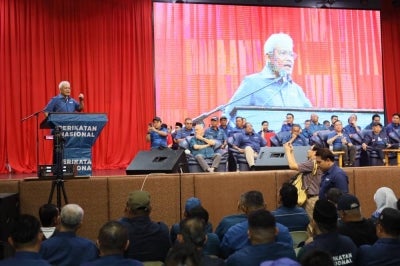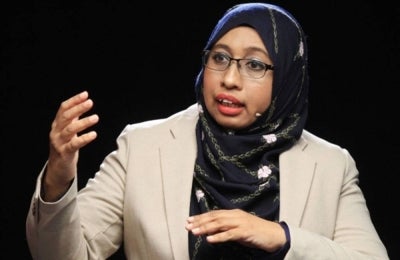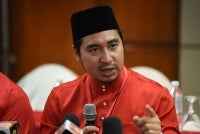Is it right to dispute loyalty because they are not Malays? Experts weigh in

SHAH ALAM - With more than 20 years of experience as the country's number one leader, Tun Dr Mahathir Mohamad deserves the title of a statesman.
However, the prominent political figure recently sparked a polemic that invited various reactions.
Through an exclusive online interview with Indian satellite TV channel, Thanthi TV, Dr Mahathir said a person must be known as a Malay to be entitled to consider Malaysia as their own country.
He also claimed that the Malaysian Indian community was not completely loyal to the country due to being still 'tied' to their country of origin.
The statement quickly gained the attention of many, the majority of whom slammed the former Langkawi MP's statement.
This included the Prime Minister Datuk Seri Anwar Ibrahim who described Dr Mahathir's statement as very irrelevant and outdated thinking that will only damage the country.
The question is, should the loyalty of Malaysians be disputed just because they are not Malays and can it affect the harmony enjoyed for 66 years after independence?
National laureate Dr Lim Swee Tin said Dr Mahathir created a deep sense of discomfort when loyalty of some Malaysians were being questioned.
"I think this is nothing more than his wild perception alone. The yardstick used is only personal anxiety that cannot be imposed on others.
"Evidence shows that the way of life of the Indian community is more local cultured, patriotic and assimilated far beyond what he knows and imagines," he told Sinar Premium, yesterday.
He added that the examples of disloyalty cited by the former prime minister twice sounded illogical.
"I believe their souls and bodies are only for Malaysia. It is very sad if their loyalty is doubted.
"Willingness to live together, moving together in developing the country and defending the country and the sovereignty of the nation is also proof of the loyalty of the Indian people that cannot be denied anymore," he said.
He said Dr Mahathir's views can disrupt the strong sense of togetherness that was intertwined in order to bring the country forward with greater excellence.
"He should be a statesman who loves the nation more, having been the prime minister and not argue with the non-Malays who have been living in this homeland for a long time," he said.
However, Universiti Kebangsaan Malaysia (UKM) Principal Fellow of Ethnic Studies Institute Professor Dr Teo Kok Seong said Dr Mahathir's statement was considered appropriate as loyalty can be seen from many aspects.
"His comments are from the aspect of loyalty to the formation of the nation. In his view, if there are still non-Malays who cannot, do not want or are not proud to speak Malay then it does not reflect one hundred per cent loyalty to the country.
"This is because the Malay language has a high national value as well as a national identity," he said.
However, there is no denying that the Chinese and Indians have shown loyalty and contribution in the aspect of nation building since the colonial era.
"Indians, for example, are involved in the plantation and road and railway construction sectors, as are the Chinese who are active in the tin mining and economic sectors.
"And the contribution (loyalty) from the aspect of the formation of the country continues to this day," he said.
He added that the non-Malays' attachment to their native land should have limits and priority should be given to the country.
"There are a few non-Malays who live their lives with too much aspiration towards their respective countries of origin. For example, there are Chinese people who consider the Chinese language to have more importance than the Malay language even in the scope of the state.
"It is appropriate that the life of plural society in this country should be based on the formation of the nation and the formation of the country which should go hand in hand," he said.
The Constitution is fair enough
Meanwhile, Professor Emeritus Datuk Seri Dr Awang Sariyan said the provisions of the Constitution involved the position of the Malay Kings, Islam as the federal religion, the Malay language as the national language and the special position of the Malays and Bumiputeras as well as the legitimate rights of other races must be defended by the people.
"There is no question of discrimination between races because the constitution is fair and clear enough and must be respected by all citizens regardless of race.
"The Constitution needs to be respected, obeyed and implemented fairly and then the country will achieve peace," he said.
He said unity and understanding existed since independence, but lately there has been a sense of dissatisfaction or incitement, perhaps because history was still not emphasised or not taught effectively.
"It may also be due to a few people who are not aware that the provisions enshrined in the constitution are sufficient.
"Therefore, there needs to be steps to educate the public or make people aware of what the essence of the constitution really is," he said.
Touching on the issue of citizens who were not yet or were not fluent in Malay, Awang said the government needed to implement training schemes such as language classes to deal with the problem.
"A positive step like that is better than allowing the situation of Malaysian citizens who cannot speak the basic national language and becoming a political polemic to continue," he added.
Download Sinar Daily application.Click Here!















